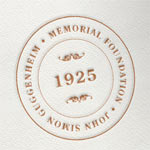Jamaica Kincaid. I read one little story called “Girl” in the New Yorker, found out who the agent was, made an offer, and signed up the book [...] We [Edna O'Brien] put together her collected stories and got Philip Roth to write the introduction and got a front page TBR [Times Book Review review].
 |
| Pat Strachen |
Pat Strachen had the idea for a book of collected stories after reading Girl, which was published in the New Yorker. She was an assistant editor at the New Yorker, and later an editor. She approached Jamaica Kincaid with the book idea.
http://www.pw.org/content/agents_amp_editors_qampa_editor_pat_strachan?cmnt_all=1
















